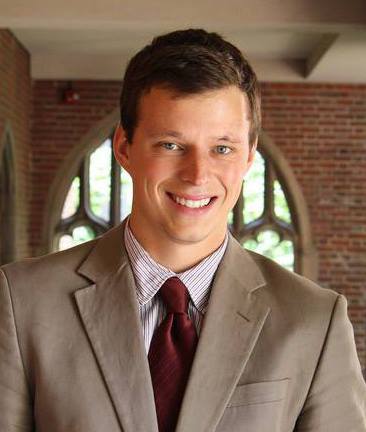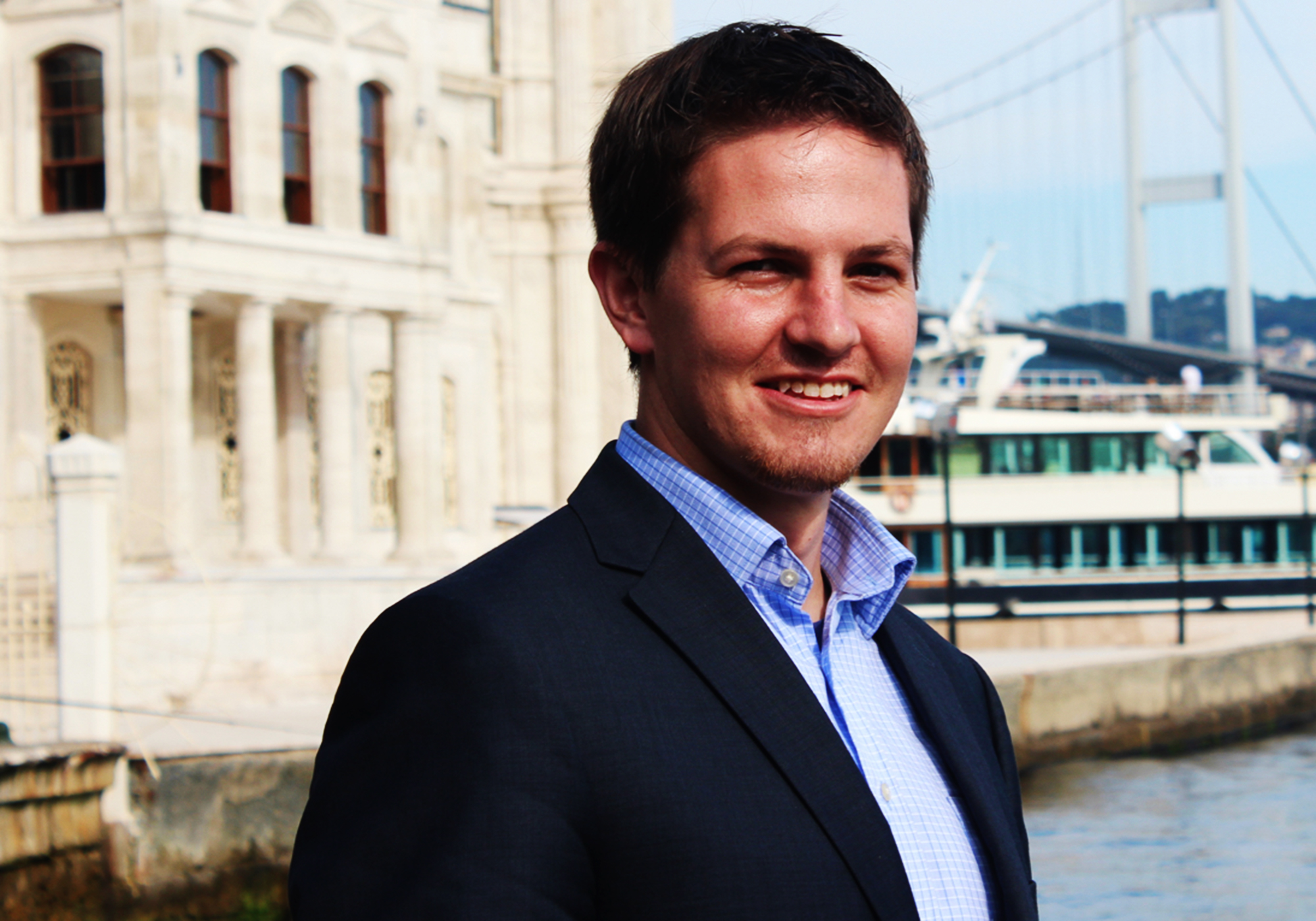An evangelical Presbyterian missionary who spent more than twenty years ministering as a pastor in western Turkey walked out of a Turkish courtroom on Friday, October 12th a convicted terrorist, sentenced to thirty seven months in prison. The saga of Andrew Brunson came to a close with a suspended sentence, and a release on time-served. All of this occurred in the midst of the Saudi killing of journalist Jamal Khashoggi in the Saudi Consulate in Istanbul; and after just more than two years in already turbulent US-Turkey relations.
Pastor Brunson’s most memorable words in this fourth and final hearing were, “I’m an innocent human being. I love Jesus. I love Turkey.”
Within hours of the verdict, Pastor Brunson and his wife Norrine were on a U.S. government plane. They were flown out of Turkey via Germany, before landing at Joint Base Andrews Saturday afternoon to be taken to a meeting with President Trump, Secretary Pompeo, and other senior officials at the White House.
“From a Turkish prison to the White House in 24 hours, that’s not bad,” President Trump said during the White House meeting where Pastor Brunson prayed on prime time television.
The entire affair raised many questions. How did the fate of this American pastor become so politicized? And how did it become the defining issue in a relationship between two NATO allies that have had a strategic relationship dating back decades? What does his release mean for U.S.-Turkey relationship and where do things go from here?
How Brunson Became the Center of the U.S.-Turkey Relationship
The saga began when Pastor Brunson and his wife Norine, who had lived in Turkey since 1993, applied for a long-term residency permit in fall of 2016. On October 7 of that year, they received a summons to the police station. They thought it was regarding the residency, but instead Andrew and Norine both were arrested and sent to a detention center. Norine was held for 13 days before being released, Andrew remained in custody for 2 years.
Pastor Brunson was detained initially as a “threat to national security,” but ultimately was charged as a supporter of Turkey’s arch-enemies: “FETO” (the Fetullah Terrorist Organization) and the PKK (Kurdistan Workers’ Party).
FETO is the name given to supporters of Turkish exile Fethullah Gulen, a Turkish imam and educator living in Pennsylvania since 1999. Though his followers were once allies of Turkish President Recep Tayyip Erdogan, they have become bitter rivals. President Erdogan holds Gulen and his supporters responsible for the July 15, 2016 attempted coup that left more than 200 people dead and over a thousand injured. Following the coup attempt, Erdogan imposed a state of emergency. His response included mass arrests of tens of thousands, sacking of thousands of academics and civil servants, seizures of businesses, and tight control of nearly all media organizations.
The PKK, which both the U.S. and NATO designate as a terrorist organization, has been part of an on-again-off-again insurgency with the Turkish state since the mid-1980s. Yet in recent years, PKK-affiliation has been a blanket label used to further stigmatize Turkey’s Kurdish population and, given U.S. partnership with Kurdish groups in Syria who Turkey sees as PKK affiliates, has become a major flashpoint in U.S.-Turkey relations as well.
So when Pastor Brunson was accused by secret witnesses and questionable evidence as a supporter of both FETO and PKK, his fate took on an all-too familiar tone. Pastor Brunson had become a political bargaining chip and a victim of what some analysts labeled as “hostage diplomacy.” While maintaining that Brunson’s case was being handled independently by the judiciary President Erdogan repeatedly linked his release of a “Pastor for an Imam” with extradition of Fethullah Gulen back to Turkey.
Brunson was not alone. Though the most prominent of the Americans detained in Turkey, also being detained are NASA scientist Serkan Golge, a dual Turkish-American citizen sentenced to seven and a half years in prison, as well as Turkish citizens who worked with the U.S. State Department, including Hamza Ulucay, a 37-year veteran, and Metin Topuz, a twenty-year veteran.
Pastor Brunson’s evangelical brethren’s political clout forced both the Trump administration and leaders on Capitol Hill to became increasingly vocal in calling for his release. When a series of diplomatic efforts to secure Brunson’s release failed to materialize this summer, the Trump administration turned to a far more aggressive approach.
When Brunson was granted only house arrest at a July hearing, Vice President Pence inserted himself directly by announcing “the United States will impose significant sanctions on Turkey until Pastor Andrew Brunson is free.”
In the weeks and months that followed, the U.S. imposed targeted sanctions under the Global Magnitzky Act against the Turkish Interior and Jusice Ministers for their roles in Pastor Brunson’s detention and increased tariffs on Turkish steel imports with Twitter threats from President Trump, all of which served to intensify already worrying economic trends in Turkey.
All of this formed the backdrop for Brunson’s October 12th hearing. At the hearing, four prosecution witnesses changed their stories setting the stage for Brunson’s charges to be changed and his possible sentence to be reduced from the 35 years down to three, paving the way for his conviction on a single count of terrorism and his return to the United States.
While Pastor Brunson is now free, the question remains what lies ahead for the U.S.-Turkey relationship and what lessons have been learned.
Where Things Go From Here
The resolution of the Brunson saga has created a small opportunity to normalize Turkey’s relationship with the U.S. While there are no shortages of roadblocks, the importance of this partnership should not be overlooked despite the challenges ahead. It is worth the diplomatic effort necessary to strengthen the relationship and pursue policies of mutual benefit.
To do so will require confronting a few significant challenges.
As highlighted, the human rights concerns in Turkey extend far beyond just Pastor Brunson. Other Americans still caught up in detention in Turkish prisons, not to mention the large number of Turkish journalists, academics, and political opponents who’ve been detained without due process. These issues should not be forgotten.
In addition, because of his identity as an pastor, the international religious freedom and evangelical community rallied around Pastor Brunson and mobilized advocacy on his behalf. His imprisonment is not the only issue that should be addressed. Longstanding concerns such as non-Muslim minorities ability to train their clergy, including the reopening of Halki Seminary, the recognition of Alevi cemevis as houses of worship, and the return of confiscated properties are all issues that should continue to be addressed by those pressing for greater rights and freedoms for all in Turkey.
The Brunson case, also reflected a growing type of personalized diplomacy with the Trump-Erdogan relationship as prominent as the U.S.-Turkey relationship. Both presidents were negotiating not only with each other, but also playing to their domestic political supporters.
After President Trump’s election there was a honeymoon between the two leaders that quickly ended when the moves to free Brunson failed this summer, some felt Trump took it personally. Following Pastor Brunson’s release Trump thanked President Erodgan and indicated that there would be a “psychological change” towards Turkey. “We feel much differently about Turkey today than we did yesterday, and I think we have a chance of really becoming much closer to Turkey,” Trump said during the meeting with Brunson in the Oval Office.
The obstacles to moving from feeling to reality are immense. The damage done with high anti-American sentiment in Turkey is hard to undo. There are a number of reasons for this, including differing policies in Syria particularly around U.S. support of the Kurdish YPG (People’s Protection Forces) in Northeastern Syria as a major sticking point.
Following Brunson’s release, there have been some positive steps. A delayed roadmap for joint Turkish-U.S. patrols around the city of Manbij, Syria is now beginning to be implemented, according to the defense ministries of both countries.
Another major sticking point is Turkey’s purchase of the Russian-made S-400 missile defense system. The reason this is troubling is not only about interoperability with other NATO systems, but because of Turkey’s participation in the new F-35 stealth fighter aircraft. The S-400 has the ability gather intelligence on the new aircraft, something that has U.S. lawmakers particularly concerned.
In seeking to find a path forward, both sides should explore a broader range of issues, particularly pursuing a growing win-win trade relationship that will be mutually beneficial versus some of the security concerns that can be zero-sum.
In fact, despite the challenges, 2017 was a record year for bilateral U.S.-Turkey trade. “It can be seen that political-diplomatic relations and economic relations move in different gears,” said Mehmet Ali Yalçındağ, chair of the Turkey-U.S. Business Council.
Another area of cooperation is the underreported yet critical area of humanitarian assistance. Turkey hosts over 3 million Syrian refugees and since the start of the Syrian conflict, the U.S. has contributed nearly $755 million to Syrian refugees in Turkey. When including Turkey’s support for Syrian refugees, the United States and Turkey are the two largest providers of humanitarian assistance in the world, according to Development Initiatives 2018 Global Humanitarian Assistance report.
Working together to address the ongoing needs of refugees in the conflict now into its seventh year could provide opportunities for enhancing ongoing partnership along with broader regional stability.
Set My People Free
Pastor Brunson is free, but many others are not. The U.S. should not push Turkey away, but continue the hard work of diplomatic engagement around core human rights issues. It should also continue to engage broad range of challenges these partner countries are facing in the region.
This work will not be easy, especially without an Ambassador in the country which is a critical first step. Lessons are being on both sides of the Atlantic about the new modus operandi between Washington and Ankara which is based far more on transactional interests than the values that were espoused about the alliance after World War Two. When flattery failed, pressure has worked. Yet extrapolating an entire history of a relationship that is in flux on the basis of Pastor Brunson’s unique case is dangerous. Christians in Turkey and throughout the Middle East are not well served when those like Pastor Brunson that are fortunate enough to be released are politicized and held up as an example of how relations can now be reset.
Despite the imperfections, the U.S.-Turkey relationship is a critical one. It is one worth investing in. Let’s hope the personalities and presidents in Washington and Ankara still agree.
By Joshua Walker and Jeremy Barker








 Live in the DC area? Sign-up for Providence's in-person events list!
Live in the DC area? Sign-up for Providence's in-person events list!